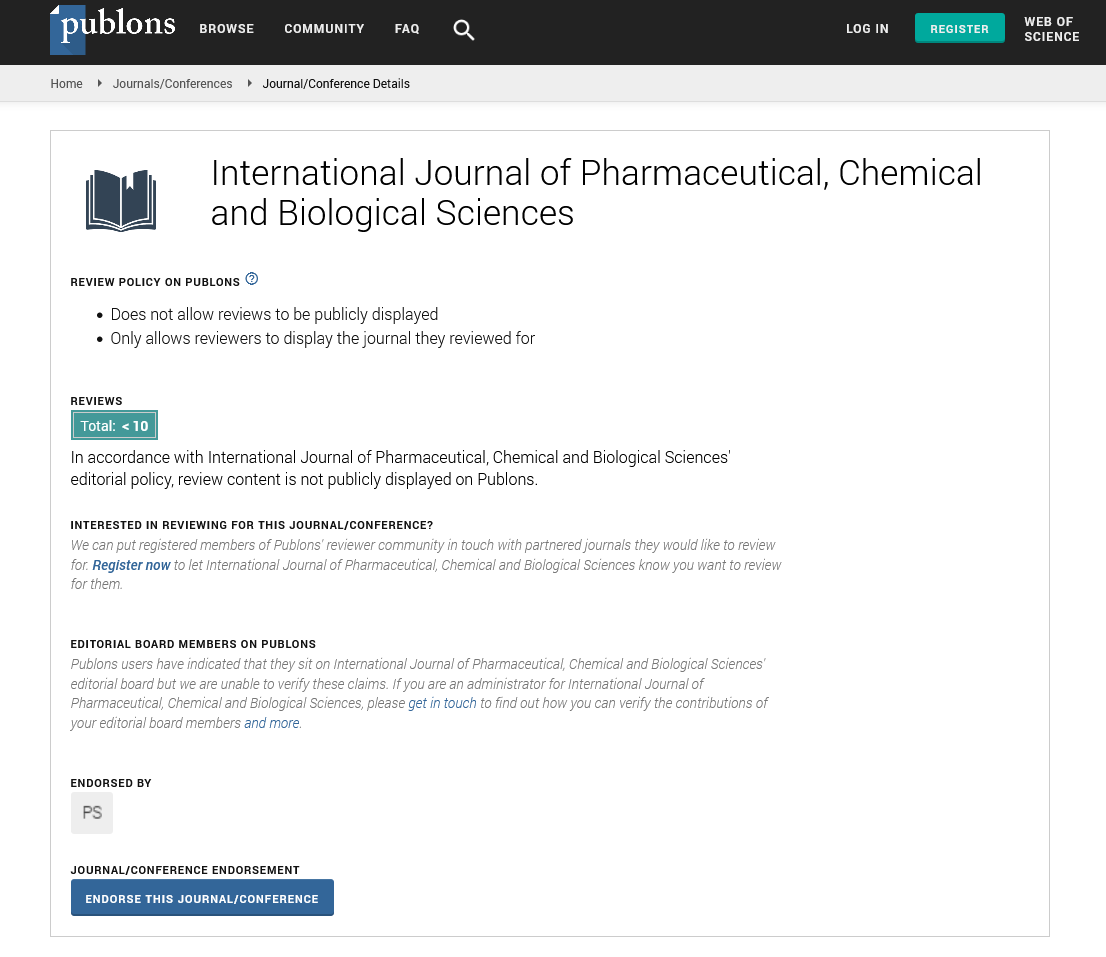Opinion - International Journal of Pharmaceutical, Chemical and Biological Sciences ( 2023) Volume 13, Issue 3
Pharmacy Practice: Navigating the Intersection of Science and Patient Care
Bellamy Jake*Bellamy Jake, Department of Clinical Sciences, High Point University, USA,
Received: 30-Aug-2023, Manuscript No. ijpcbs-23-113685; Editor assigned: 01-Sep-2023, Pre QC No. ijpcbs-23-113685 (PQ); Reviewed: 15-Sep-2023, QC No. ijpcbs-23-113685; Revised: 20-Sep-2023, Manuscript No. ijpcbs-23-113685 (R); Published: 27-Sep-2023, DOI: DOI: 10.36648/2471-9668-13.3.2
Introduction
Pharmacy practice is an essential component of healthcare that blends the rigorous science of pharmacology with the compassionate art of patient care. Pharmacists are crucial members of the healthcare team, playing diverse roles in medication management, counseling, and ensuring the safe and effective use of drugs. In this comprehensive article, we will embark on a journey into the dynamic realm of pharmacy practice, exploring its historical evolution, the multifaceted roles of pharmacists, contemporary challenges, and the exciting prospects that lie ahead for this critical profession. Pharmacy practice has ancient roots, dating back to civilizations like the Sumerians and Egyptians, who documented the preparation and use of medicinal substances. During the middle Ages, apothecaries and early pharmacists began formulating and dispensing medications, often working alongside physicians. The 19th century saw the emergence of pharmacy as a distinct profession, with the establishment of professional organizations and the development of pharmaceutical education. Pharmacists are responsible for accurately dispensing prescribed medications to patients, ensuring proper dosage and labeling. Patient counseling is a fundamental role of pharmacists, encompassing explanations of drug usage, potential side effects, and interactions. Pharmacists play a crucial role in reviewing patient medications, identifying potential issues, and optimizing drug regimens.
Description
The most familiar setting, community pharmacists work in retail pharmacies, offering a wide range of over the counter and prescription medications. Hospital pharmacists are integral to healthcare teams, managing medication regimens for inpatients, providing drug information, and ensuring medication safety. Pharmacists in the pharmaceutical industry are involved in drug development, testing, quality control, and regulatory affairs. Some pharmacists work in research, exploring new drug discoveries and advancements in pharmaceutical sciences, while others become educators, training the next generation of pharmacists. Pharmacists can specialize in fields like oncology, geriatrics, psychiatry, and nuclear pharmacy, among others. Pharmacists must obtain licensure to practice, typically requiring a Doctor of Pharmacy (Pharm.D.) degree and passing licensure exams. National organizations like the American Pharmacists Association (APhA) and the International Pharmaceutical Federation (FIP) advocate for pharmacists’ interests and provide resources for professional development. Rising drug costs and insurance limitations can pose barriers to patient access to medications.
Conclusion
Pharmacy practice is a dynamic and evolving profession at the intersection of science and healthcare. Pharmacists, armed with their deep knowledge of medications and their effects, are instrumental in ensuring the well-being of patients. As healthcare systems adapt to the changing landscape of medicine and technology, the role of pharmacists continues to expand, offering new opportunities to enhance patient care and safety. From the apothecaries of antiquity to the highly trained professionals of today, pharmacy practice has come a long way. The future holds exciting possibilities, with advances in technology, pharmacogenomics, and collaborative care reshaping the profession. Pharmacy practice stands as a testament to the enduring commitment of pharmacists to improve patient outcomes, promote health, and safeguard the welfare of individuals and communities.
Acknowledgement
None.
Conflict Of Interest
None.

